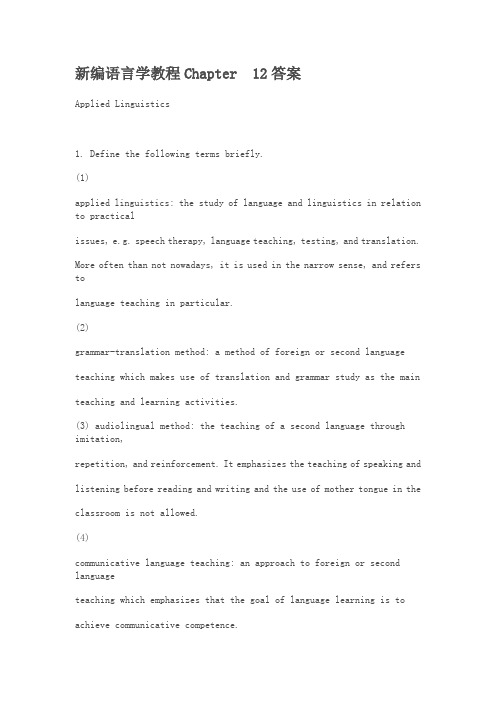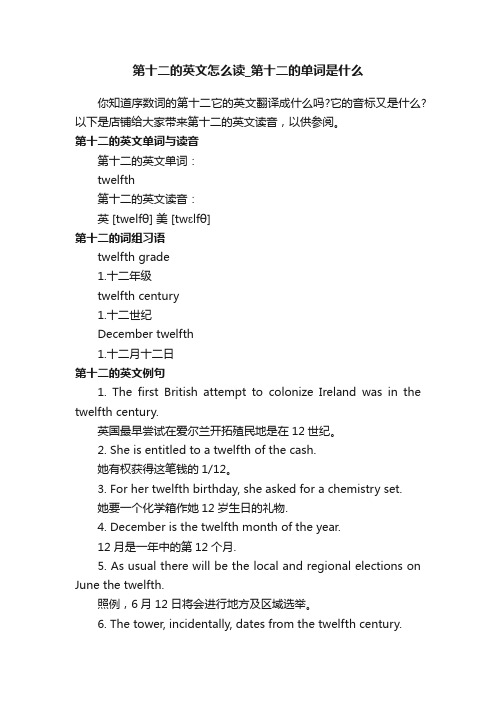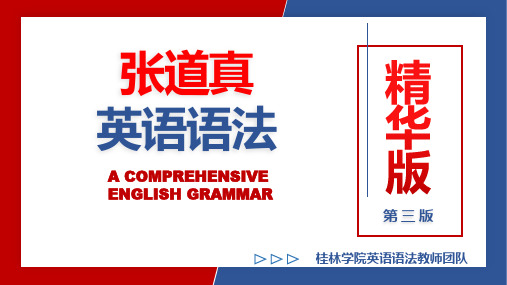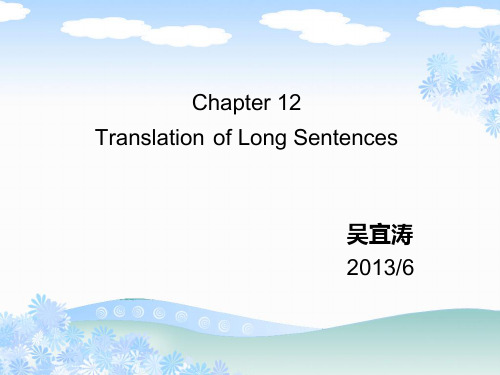chapter12 TURNOVER
Chapter 12 课后答案

新编语言学教程Chapter 12答案Applied Linguistics1. Define the following terms briefly.(1)applied linguistics: the study of language and linguistics in relation to practicalissues, e.g. speech therapy, language teaching, testing, and translation.More often than not nowadays, it is used in the narrow sense, and refers tolanguage teaching in particular.(2)grammar-translation method: a method of foreign or second languageteaching which makes use of translation and grammar study as the mainteaching and learning activities.(3) audiolingual method: the teaching of a second language through imitation,repetition, and reinforcement. It emphasizes the teaching of speaking andlistening before reading and writing and the use of mother tongue in theclassroom is not allowed.(4)communicative language teaching: an approach to foreign or second languageteaching which emphasizes that the goal of language learning is toachieve communicative competence.(5)testing: the use of tests, or the study of the theory and practice of their use,development, evaluation, etc.(6)achievement test: a test which measures how much of a language someone haslearned with reference to a particular course of study or program of instruction.(7)validity: (in testing) the degree to which a test measures what it is supposedto measure, or can be used successfully for the purposes for which it is intended.A number of different statistical procedures can be applied to a testto estimate its validity. Such procedures generally seek to determine what thetest measures, and how well it does so.(8)reliability: (in testing) a measure of the degree to which a test gives consistentresults; a test is said to be reliable if it gives the same results when it isgiven on different occasions or when it is taken by different people.(9)proficiency test: a test which measures how much of a language someone haslearned without considering the syllabus, duration and manner of learning.(10) subjective test: a test which is scored according to the personal judgment ofthe marker, such as essay writing or translation.(11) objective test: a test that can be marked without the use of the examiner’spersonal judgment.(12) language aptitude test: a test which measures a person’s aptitude for secondor foreign language learning and it can be used to identify those learners who are most likely to succeed.(13) diagnostic test: a test which is designed to show what skills or knowledge alearner knows and doesn’t know. For example, a diagnostic pronunciationtest may be used to measure the learner’s pronunciation of English sounds.It would show which sounds a student is and is not able to pronounce. Diagnostictests may be used to find out how much a learner knows or to measure how successful an instruction program has been.(14) backwash effect: Tests strongly affect what actually occurs in the classroomand the effect of tests on classroom L2 teaching and learning is known as thebackwash effect.2. The advantages of grammar-translation method:(1)As the grammars described in this method contain very detailed descriptionsof the correct construction of phrases and sentences of a language, accuracyis stressed and improved.(2)Students’ ability to read and write is encouraged and improved since themethod focuses on the written work.(3)This method is less demanding than some other approaches for a teacherwhose oral proficiency may not be adequate.(4)This method is popular with people who would like to study English independently,especially the adult learners who want to learn grammar rules anduse them to approach new materials by themselves.The disadvantages of grammar-translation method:(1)It emphasizes language at the sentence level regardless of context, so the organizationof language above the sentence level is not so carefully studied.(2)As the focus is on written work, oral fluency and spontaneity is not so welldeveloped and common everyday language is not taught enough.(3)The basic techniques in this method are rote learning of the rules and vocabulary,and grammar rules are taught deductively as general statements tobe applied in particular exercises in translation, so the learners may find itboring to learn.(4)With the emphasis on grammar, students typically know a lot about the languagebut are unable to actually use it. As a result, their use of the new languageoften tends to be literal or unnatural.3.Changes required would include:(1)Change in teacher’s role. The teacher can no longer be the source of knowledgeand trut h about the language. The teacher’s role has more to do withinitiating activities.(2)Change in learner’s role. The learner can no longer be passive. The learnermust actively participate in the activities.(3)Change of materials. These should, as far as possible, preserve the features ofauthentic instances of language use.(4)Change of techniques. These should emphasize the tasks (not drills) to beperformed and identify the skills being practiced.(5)Change in attitude. If the above are to be achieved then we are involved inchanging our attitudes towards teaching and learning in general.4.Achievement tests are based on a particular language syllabus, or part of a syllabus,or chapters in a textbook that learners are known to have studied and theyaim to know how well learners know what they have been taught. For example,the Chinese MET test, which is based on the Middle School English Syllabus andtaken by students leaving Senior Middle School, and Mid-Term tests, designed forUniversity English Majors based on just a few chapters from a textbook.5.The validity of a test relates to what the test claims to measure and how well itdoes so. If we know that a test is valid, then we know what we can confidently sayabout a person who passes or fails it. The two most important aspects of validityare content validity and construct validity. If a test has content validity it meansthat the test questions cover a fair sample of the language structures and skillsthat the test claims to be measuring. If a test has construct validity, it shows that itmeasures only what it claims to measure and nothing else.6.A test is said to be reliable if it gives the same results when it is given on differentoccasions or when it is taken by different people. There are two aspects to reliability:test reliability and scorer reliability. Test reliability refers to how consistent scoresare on a test. If, for example, there are two versions of a particular test and the sameperson takes them on consecutive days and his scores are almost the same on eachversion, then such a test has test reliability. A test has scorer reliability if there is ahigh level of agreement between different people marking the same test paper.。
第十二的英文怎么读_第十二的单词是什么

第十二的英文怎么读_第十二的单词是什么你知道序数词的第十二它的英文翻译成什么吗?它的音标又是什么?以下是店铺给大家带来第十二的英文读音,以供参阅。
第十二的英文单词与读音第十二的英文单词:twelfth第十二的英文读音:英[twelfθ] 美 [twɛlfθ]第十二的词组习语twelfth grade1.十二年级twelfth century1.十二世纪December twelfth1.十二月十二日第十二的英文例句1. The first British attempt to colonize Ireland was in the twelfth century.英国最早尝试在爱尔兰开拓殖民地是在12世纪。
2. She is entitled to a twelfth of the cash.她有权获得这笔钱的1/12。
3. For her twelfth birthday, she asked for a chemistry set.她要一个化学箱作她12岁生日的礼物.4. December is the twelfth month of the year.12月是一年中的第12个月.5. As usual there will be the local and regional elections on June the twelfth.照例,6月12日将会进行地方及区域选举。
6. The tower, incidentally, dates from the twelfth century.那座塔,顺便提一下,可以追溯到12世纪。
7. They are going to play " Twelfth Night " next week.下周,他们将演出 " 第十二夜 ".8. During the twelfth century there is little to report.关于12世纪的情况,我们可谈的很少.9. Today is the twelfth. Why?今天是十二号. 怎么?10. It's November the twelfth.今天是十一月十二日.11. I had scarcely passed my twelfth birthday when I entered the inhospitable regions of examinations.我跨进那冷淡无情的考区时才十二周岁.12. Let's hope it's a bright sunny day on the twelfth! With much love.希望12日那天,是一个明朗的晴天! 顺致热情的问候.13. Twelfth: Life buoy . Feel free to come when you need to talk.第十二件: 救生圈(救生圈形的糖果)当你需要谈一谈时,随时可以来.14. There are two experiments is to be tested in twelfth chapter.本文第十二章中对可能测试的实验,有相关描述.15. As 2010 begins, Uranus is still in Pisces and your twelfth house.由于2010年开始, 天王星在双鱼座仍是和你的第12宫.第十二的双语例句1. Agassi was playing well above his world ranking of 12.阿加西的比赛表现大大超出了他在世界上第12位的排名。
基础笔译 Chapter 12 可译性与不可译性

杨宪益夫妇的译文:
This bird appears when the world falls on evil times; None but admires her talents and her skill; First she complies, then commands, then is dismissed, Departing in tears to Jinling more wretched still.
关键词order也是多义词,教授的本意是要让大家守秩 序,而学生则是故意理解为“要(菜或饭)”,所以喊出 “要啤酒”。真是让教授苦笑不得,让读者忍俊不禁。但 是,若order直译为汉语,则令人不知所云了。
真的就没法译了吗?实际上,发挥译者主体作和何创 造性是不难找到机智幽默的翻译的。
——教授敲敲着教桌,喊道:“先生们,吆喝什么?” ——全班喊着回答:“要喝啤酒!”
我们在资料搜集的过程中有个惊异地发现:1)英语 的文字艺术形式比较少,而汉语就非常丰富,比较而言, 可以说用“洋洋大观”来形容,但是要想找到这类文字艺 术形式的成功的译例,则很难;2)英语的特殊语言现象 或文字艺术形式则比较易于译成汉语,而汉语译成英语就 非常之难。
表意文字和表音文字的差异是有目共睹的,表意 文字的大多数表意功能是表音文字所不具有的,因此, 用不具有表意功能的文字去再现表意文字的文字艺术 表现形式是不可能的。就像汽车不具有飞行的功能, 因而,它就永远不可能在天空飞一样。若能在天空中 飞行,就一定具有飞行的功能。下面以实例来证明这 一论点。
4)辛格的代表作《傻瓜吉姆·佩尔》中吉姆·佩尔的 妻子埃尔卡与小徒弟搞上了关系,众人议论不休。 吉姆·佩尔气愤之极,脱口说道:
If my mother had known of it, she’d have died a second time.
商务英语综合教程chapter (12)

2) 主句是you should learn as much information as possible about the market。意思是尽可能多地获取市 场的信息。 3)that you want to enter是宾语从句,修饰market, 意 思是:你想要进入的(市场)。 4) About (介词)有几个并列的宾语:the market…,the potential clients and the competitors… 5) You will deal with 是定语从句,修饰competitors. 6) Before you join the negotiation 是修饰全句的时间状 语
2) at the beginning of negotiation在谈判开始 3) pricing issues 价格问题,价格争端 4) at the expense of … 在损害……的情况下,以……为 牺牲品 5) other important components 其他重要因素 6) marketing mix 营销组合 4. If the price quoted by exporter has not been accepted by importer, the exporter should react positively by initiating discussions on non-price questions, instead of immediately offering price concession or taking defensive attitude. 如果出口商所报的价格没被进口商所接受,出口商应做出 积极的反应,开始讨论非价格问题,而不要立即在价格上 做出让步,或采取守势。
如何教英语第12章读后感

如何教英语第12章读后感全文共6篇示例,供读者参考篇1Hello everyone, today I want to share with you my thoughts about Chapter 12 of our English textbook. It was really interesting and I learned a lot from it!First, I really liked how the characters in the story had to solve a mystery. It was like being a detective and figuring out clues to find the answer. It made me feel like I was part of the adventure!Second, I was impressed by how the characters in the story all worked together to solve the problem. They each had their own strengths and weaknesses, but they all helped each other out and shared ideas. It showed me that teamwork is really important and can help us achieve our goals.Third, I learned some new words and phrases while reading this chapter. I found it helpful to write them down and try to use them in my own sentences. It's a fun way to expand my vocabulary and improve my English skills.Overall, I really enjoyed reading Chapter 12 and I can't wait to see what happens next in the story. It's exciting and keeps me interested in learning English. I think it's important to practice reading and speaking English every day so we can become better at it. Let's keep studying and improving together!篇2Wow, reading the 12th chapter of our English book was so much fun! It was all about different ways to teach English and I learned a lot of cool tips and tricks. Here are some of my thoughts after reading the chapter:First, I really liked how the chapter talked about using games and activities to make learning English more fun. I never knew that you could play games like Bingo or Pictionary to help remember words and phrases. It sounds like such a fun way to practice English!I also thought it was interesting to learn about the importance of using real-life examples and situations when teaching English. It makes so much sense to learn new words and phrases in contexts that we can relate to. I can't wait to try using some real-life examples in my own English learning.Another cool idea from the chapter was using technology to practice English. I never thought about using apps and websites to help improve my English skills. I'm definitely going to check out some of the apps mentioned in the chapter and see how they can help me learn English better.Overall, I really enjoyed reading the 12th chapter of our English book. It gave me a lot of great ideas on how to make learning English more fun and effective. I can't wait to try out some of the tips and tricks I learned in the chapter. English class is going to be so much more exciting now!篇3Chapter 12 of our English textbook is so exciting and fun! I never thought learning English could be so interesting. After reading this chapter, I have so many thoughts and feelings to share with all of you.First of all, I loved the story in this chapter. It was about a group of friends going on a camping trip and all the cool things they did together. I wish I could go on a camping trip like that with my friends! The story made me realize how important it is to spend time with friends and have fun together.Secondly, I really enjoyed the English exercises at the end of the chapter. They were challenging, but they also helped me learn new words and grammar rules. I feel like I'm getting better at English every day!Lastly, the chapter taught me the importance of practicing English every day. If we want to become fluent in English, we have to keep practicing and never give up. I feel motivated to study English even harder now!In conclusion, I had a great time reading and learning from Chapter 12. I can't wait to see what we'll learn in the next chapter. English is so much fun! Let's keep studying and improving together. Thank you for listening to my thoughts on Chapter 12. Let's continue to learn and grow together in English class!篇4Hello everyone! Today I want to share with you my thoughts on Chapter 12 of our English textbook. I really enjoyed this chapter because it was all about learning new words and phrases in English.First of all, I learned some really cool new words in this chapter, like "delicious" and "fantastic". These words are so fun to say and they make me sound really smart when I use them in asentence. I also learned how to use these words in different situations, like when I want to talk about my favorite food or when I want to describe something amazing.Another thing I liked about this chapter was the exercises at the end. They were a bit challenging, but they helped me practice using the new words and phrases I learned. I felt really proud of myself when I got the answers right. It showed me that if I keep practicing, I can get better at English.Overall, I think Chapter 12 was really helpful and fun. I can't wait to learn more new words and phrases in the next chapter. English is such a cool language and I'm excited to keep improving my skills. Thanks for listening to my thoughts on Chapter 12!篇5Chapter 12 of our English textbook was really cool! It was all about learning new words and how to use them in sentences. I want to share some of my thoughts and feelings after reading this chapter.First of all, I learned a lot of new words that I didn't know before. Words like "photograph," "excited," and "adventure"were so much fun to learn! It was like I was going on an adventure in my mind as I read through the chapter.I also liked how the chapter taught us different ways to use the new words in sentences. It was cool to see how we could change the words to make different meanings. For example, we could say "I am excited" or "I am very excited" to show how much we are feeling.The exercises at the end of the chapter were really helpful too. They helped me practice using the new words in sentences and made me feel more confident in my English skills. I think I will remember these words better now because I practiced using them in different ways.Overall, I really enjoyed reading Chapter 12 of our English textbook. It was fun to learn new words and practice using them in sentences. I can't wait to see what we will learn in the next chapter!篇6When we finished reading Chapter 12 of our English textbook, I was so excited to share my thoughts and feelings about it. This chapter was all about going on a trip to the zoo, and it was super fun to read about all the animals we saw there.First of all, I loved learning new words like "elephant" and "giraffe". They are such cool animals and I can't wait to see them in real life one day. It was also interesting to learn about what they eat and how they behave in the wild.The part that I enjoyed the most was when the author described the elephant splashing around in the water. It made me giggle and I could imagine how much fun it would be to watch an elephant playing like that. I also liked the part where the giraffes were stretching their necks to reach the leaves on the tree. It was so funny!I also learned a lot about how to write a good paragraph from this chapter. The author used lots of descriptive words to paint a picture in my mind, and I want to do the same in my own writing.Overall, I had a great time reading Chapter 12 and I can't wait to read the next one. I hope we get to go on more adventures and learn new things about animals. English class is so much fun!。
第十二章 企业国际化经营《企业管理》PPT课件

的国家或地区生产,然后运往目标国家或地区,这就限制了劳动力
的出口:(一)非直接出口进入方式、(二)直接代理商或经销商、
(三)建立国外销售分店(或子公司)
二、合同进入方式
B
合同进入方式是一个国际化经营的企业与目标国家或地区的法
人之间在转让技术、工艺等方面订立长期的、自始至终的、非
投资性的合作合同:(一)许可证贸易、(二)特许经营、
生产和销售。 竞争。
界范围内以 这个特定的 部分进行竞 争。
特点,将 其经营活 动集中于 特定的国
策可以排 除许多国 际竞争者
家市场。 国家市场。
CHAPTER
FOUR
第四节
企业进入国际市场的方式
所谓进入国际市场的方式,是指企业使其产品、技术、工艺、 管理及其他资源进入国外(国家或地区)市场的一种规范化的 部署方式。从经济学的角度看,企业进入国外市场仅有两条道 路:第一,在目标国家或地区以外的国家或地区生产产品并向 目标国家或地区出口。第二,向目标国家或地区输送技术、资 金、工艺,直接或者采用联合方式运用当地的资源(特别是劳 动力资源)生产产品并在当地销售。
CHAPTER
12
第十二章 企业国际
化经营
CHAPTER
ONE
第一节
企业国际化经营的原因 及特点
一 企业国际化经营的原因
一般来说,企业进行国际化经营有两个目的:一是获利;二是 求稳定。就获利来说,国际化经营可使企业获得满足国外市场 对本企业产品或服务日益增长的需求的机会,扩大本企业产品 的销售范围,从而获得更多的利润。此外,对企业产品或服务 的新需求可对企业的生产过程起到稳定的作用,而不至于受国 内市场周期性变化的影响。企业走向国际化经营具体原因包括:
人民大2023张道真英语语法(第三版)(精华版)课件Chapter 12

1.6 -ed形容词
(2)有些这类形容词,意思和相关动词有些距离,例如: animated cartoons 动画片
strained relations 紧张的关系
determed feelings
复杂的情绪
1.6 -ed形容词
(3)还有一些 -ed 形容词可说是类属形容词,也由动词的过 去分词变来,但不能用于比较级:
常见的这类形容词有:
这类形容词不能用于比较级。
annual available commercial democratic economic
empty independent
agricultural basic
communist direct public
external south
alternative central
remaining resounding rising
booming dying
recurring ruling
bursting existing reigning
1.5 -ing形容词
除了这些,还有不少-ing 形式可用作定语,但这些词还不能 算作形容词。如:
the governing body of a university
a simply-furnished rooms a well-known novelist a tall, powerfully built man
1.7 合成形容词
(1)合成形容词在英语中也是比较普通的,例如:
a good-looking girl
a light-hearted mood
well-behaved children long-lasting friendship
chapter 12英语翻译方法6

• 凡外商投资企业有能力也愿意(1)与天津市工业企业(2)通过技术转 让、引进人才、技术帮助、经济支持等途径(3)共同开发(4)国家统 一经营以外的(5)制成品(6),特别是开发机电产品和精细化工产品 (7),并通过外方的销售渠道(8)直接为外国公司提供制成品(9), 可以向市外经贸委申请扩大联合开发的业务(10)。
• 本世纪上半叶的上海曾经是中国工业、贸易、金融和商业 的中心,有着远东大都会浪漫而传奇的历史,吸引过不少 外来资本,因而一度成为“冒险家的乐园”。 • In the first half of this century, Shanghai served as the industrial, trade, financial and commercial center of China. It attracted many foreign investors as a romantic oriental city and an adventurers’ paradise.
• 从发展中国家的观点来看,下一个十年应有一个大力加速 科学技术合作的纲领,旨在广泛传播技术,从而满足人们 诸如营养、住宅、交通、卫生保健的基本需要。
• The interests of peace prompt us to speak in restrained and measured language and to avoid any escalation of mutual recrimination which would be likely to compromise the patient and discreet quest for a peaceful settlement of this conflict.
- 1、下载文档前请自行甄别文档内容的完整性,平台不提供额外的编辑、内容补充、找答案等附加服务。
- 2、"仅部分预览"的文档,不可在线预览部分如存在完整性等问题,可反馈申请退款(可完整预览的文档不适用该条件!)。
- 3、如文档侵犯您的权益,请联系客服反馈,我们会尽快为您处理(人工客服工作时间:9:00-18:30)。
原则
德才兼备原则 机会均等原则 民主监督原则 “阶梯晋升”与“破格提拔”相结合 有计划替补和晋升原则
TURNOVER 人员流动
Resignation/Quit (辞职) Dismissal(解雇) Layoff(临时解雇)
裁员风暴
朗讯 通用电气 戴姆勒·克莱斯勒 摩托罗拉
Managing the Effects of Layoffs on Survivors
FACTORS AFFECTING SURVIVORS' REACTIONS 影响幸存者反应的因素 Perceived Fairness 公平感 Changed Working Conditions 变化的工作条件
Pre-turnover costs Separation costs Vacancy costs Recruiting and new-hire
processing costs
Turnover Costs
Pre-turnover costs 离职前成本
slower work pace 工作效率降低 increased absenteeism 缺勤增加
Recruiting and new-hire processing costs 重新雇佣成本
the direct cost of advertisement and promotional materials, referral bonuses, relocation expenses, sign-on bonuses, background checks
PROCESS?
FACTORS AFFECTING SURVIVORS' REACTIONS
Changed Working Conditions
HOW MUCH SHOULD I WORRY ABOUT THE POSSIBILITY OF FURTHER LAYOFFS?
HOW DOES MY JOB COMPARE TO THE ONE THAT I HAD BEFORE THE LAYOFFS?
organization Prepar the layoffs
Separation costs 分离成本
severance pay 离职工资 unemployment costs 事业成本 litigation fees 诉讼费用
Vacancy costs 空缺成本
lost opportunities in sales and service 销售与服务机会的流失 overtime pay for employees who pick up the slack 有关人员的加班工资
施乐 英特尔
思科 宝洁 爱立信 Delphi 北电网络 迪斯尼 爱华 大宇 康柏
1.6万 7.5万(未来2年) 2.6万(3年内) 已经裁减1.2万 5200 5000 5500至8000 9600 3300 11,500 15,000 4000(3%) 50% 6500 5000
Turnover Costs
WOULD BE LAID OFF VERSUS CHOSEN TO REMAIN? DID THE ORGANIZATION PROVIDE TANGIBLE CARETAKING SERVICES TO
HELP SOFTEN THE BLOW FOR THOSE LAID OFF? DID THE ORGANIZATION INVOLVE ITS EMPLOYEES IN THE LAYOFF DECISION
TO THE DETAILS? DID MANAGEMENT PROVIDE A CLEAR AND ADEQUATE EXPLANATION OF THE
REASONS FOR THE LAYOFFS? WERE CUTBACKS SHARED AT HIGHER MANAGERIAL LEVELS? WHAT DECISION RULE WAS USED TO DETERMINE WHICH EMPLOYEES
Evaluate the relationship between the layoff and corporate strategy and culture
Provide ample advanced notice Identify key people and solicit their commitment to the new
the wages of employees who recruit, process paperwork, conduct interviews and tours, give tests, train and conduct orientation
the wages of support staff who hook up computers and phones, process identification badges
FACTORS AFFECTING SURVIVORS' REACTIONS
Perceived Fairness
IS THE LAYOFF JUSTIFIED? IS THE LAYOFF CONGRUENT WITH CORPORATE CULTURE? DID THE ORGANIZATION PROVIDE AMPLE ADVANCED NOTICE? IN IMPLEMENTING THE LAYOFF, HOW WELL DID THE ORGANIZATION ATTEND
WHAT IS MY FUTURE HERE? WHAT ARE THE REACTIONS OF MY FELLOW SURVIVORS?
Managing the Effects of Layoffs on Survivors
Before the layoff, managers should:
